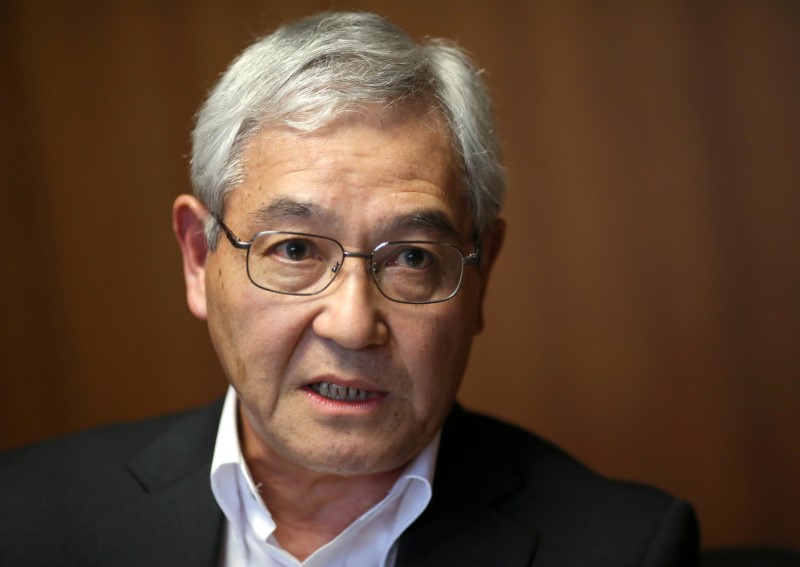 © Reuters. FILE PHOTO: BOJ board member Sakurai speaks during an interview with Reuters at the BOJ headquarters in Tokyo
© Reuters. FILE PHOTO: BOJ board member Sakurai speaks during an interview with Reuters at the BOJ headquarters in TokyoBy Leika Kihara
MAEBASHI, Japan (Reuters) – Bank of Japan board member Makoto Sakurai said on Thursday excessive monetary easing could destabilize the economy and suggested the bank could whittle down its massive stimulus program if growth continues to strengthen.
Sakurai, a former academic who is seen as representing the BOJ’s mainstream views, also said the central bank must be mindful of the risk that prolonged easing may hurt financial institutions’ profits and disrupt Japan’s banking system.
“If financial institutions’ profits are eroded for a long period time under a low-interest rate environment, that could affect financial intermediation,” Sakurai said in a speech to business leaders in Maebashi, eastern Japan, on Thursday.
The remarks underscore a growing concern among central bankers about the rising cost of the BOJ’s stimulus program, which has made them more open to debating a future exit from crisis-mode policies.
The BOJ’s yield curve control (YCC), which caps long-term borrowing costs at zero, will have a stronger effect in boosting demand as inflation expectations and Japan’s economic potential grow, Sakurai said.
That means maintaining ultra-loose policy for too long could create excessive demand, he added.
“We need to pay utmost caution so that changes in the external environment don’t disrupt the balance between supply and demand,” he said.
“The BOJ must examine how best to guide monetary policy as needed without any preset idea, taking this point into account.”
Under YCC, the BOJ guides short-term rates at minus 0.1 percent and the 10-year bond yield around zero percent.
BOJ Governor Haruhiko Kuroda has stressed the central bank was in no rush to reduce its stimulus with inflation still distant from its 2 percent target.
But he has also signaled the chance of raising the yield target before inflation hits 2 percent, given the rising cost and diminishing returns of prolonged easing.
A summary of the debate at the BOJ’s April rate review showed some board members voicing concern over the cost of easing.
One member said the BOJ must find ways to gain public understanding that the bank is ready to dial back monetary support if the economy continues to improve, a sign it is working to prepare markets for a future exit.
Fusion Media or anyone involved with Fusion Media will not accept any liability for loss or damage as a result of reliance on the information including data, quotes, charts and buy/sell signals contained within this website. Please be fully informed regarding the risks and costs associated with trading the financial markets, it is one of the riskiest investment forms possible.
Source: Investing.com


























